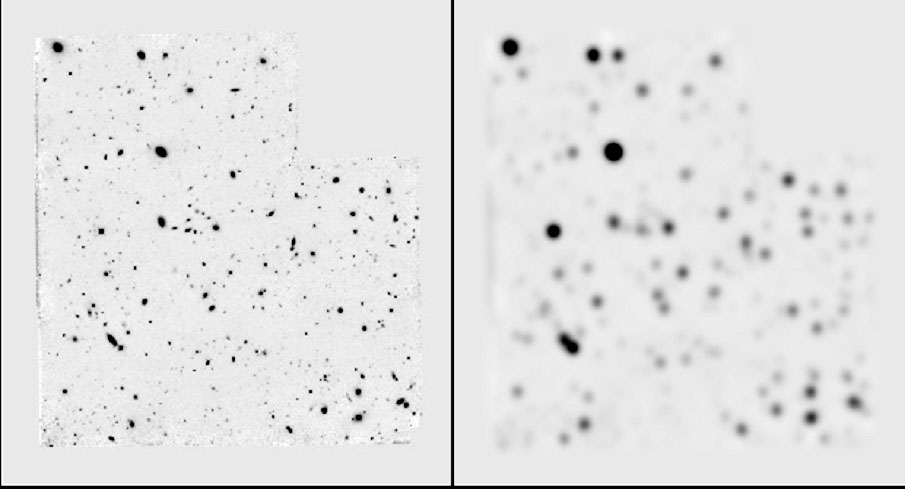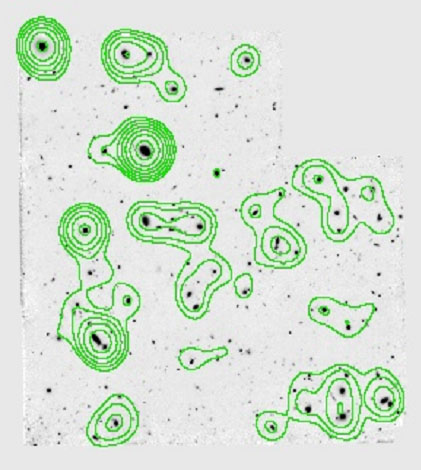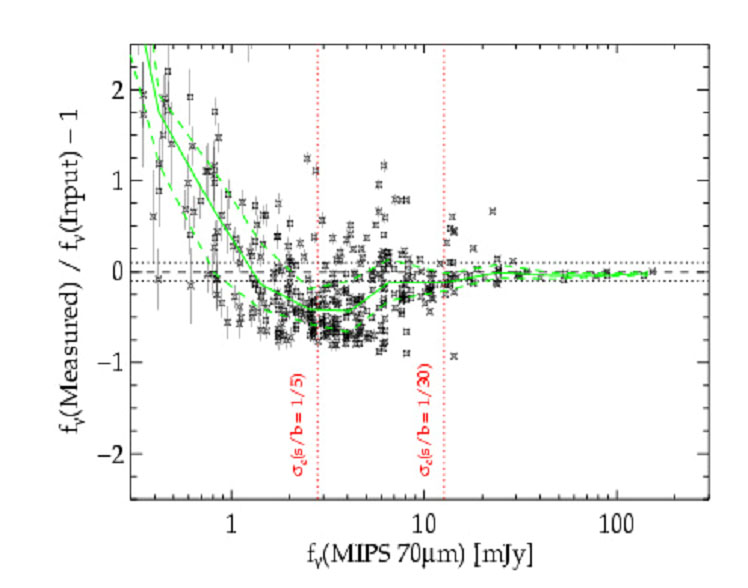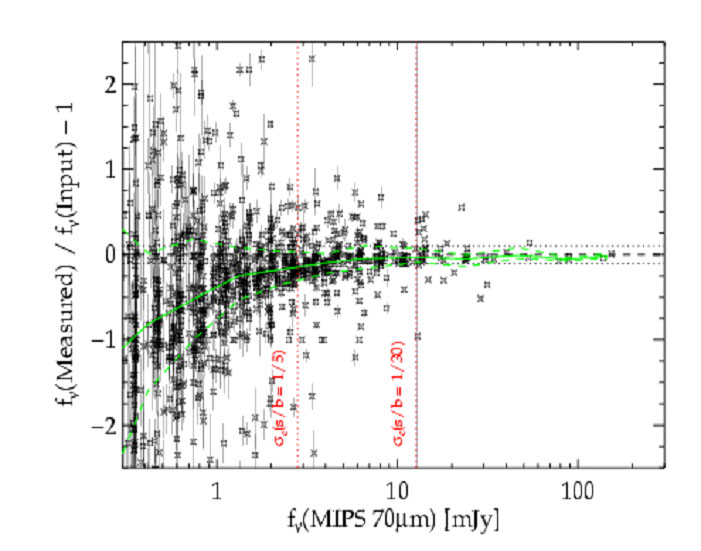![]()
 |
 |
The MIPS resolution is about 6 arcsec at 24 microns, 17 arcsec at 70 microns, and 39 arcsec at 160 microns. For comparison, to the upper left is a NICMOS image of the HDF, resolution about 0.2 arcsec. To the upper right is the same image smoothed to our resolution at 24 microns, and to the left is the original with contours for our resolution at 70 microns. These sizes are much bigger than the true sizes of high redshift galaxies. Therefore, all such galaxies will appear to be point sources to MIPS (we will have to take a look at pictures of the fields to identify any nearby galaxies that might violate this assumption). Knowing that all the sources are unresolved is a big help in interpreting crowded fields such as those in our simulations. |
The simple way to identify the sources is to use a program that fits multiple "point spread functions" (PSFs) to the image. A point spread function is just the image of a perfect point source, as seen through the telescope and instrument. DAOPHOT is a widely used program that takes many PSFs and adjusts them in position and amplitude until they provide an optimum fit to a crowded field of point sources - it was originally developed to study clusters of stars, but it should work fine on the MIPS data.
We have found that we can do significantly better at 70 microns, however, if we have a deep 24 micron image. We use the positions of the sources detected in this image as an additional constraint, and adjust the brightnesses of the sources to match the 70 micron image.
| One way to look at the gain is in the accuracy of the photometry for very faint sources. To the left is the result from just fitting a field of onconstrained PSFs. To the right is the result of constraining the positions at 70 microns to agree with those at 24 microns. In the constrained case, the bias toward overestimating the source strengths has been removed and usable measurements have been obtained for most sources down to about 1 mJy. | |
 |
 |
 |
 |
|